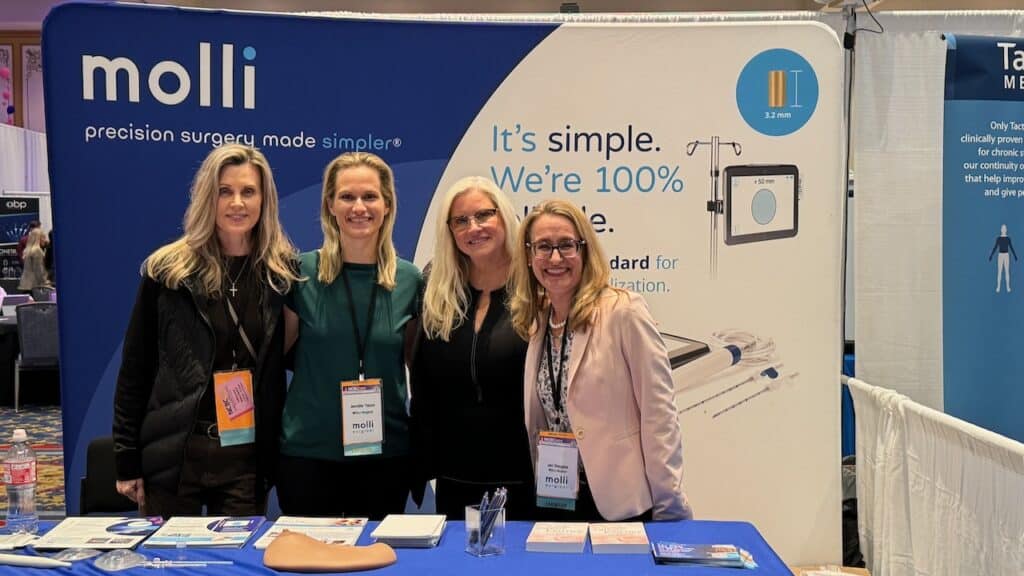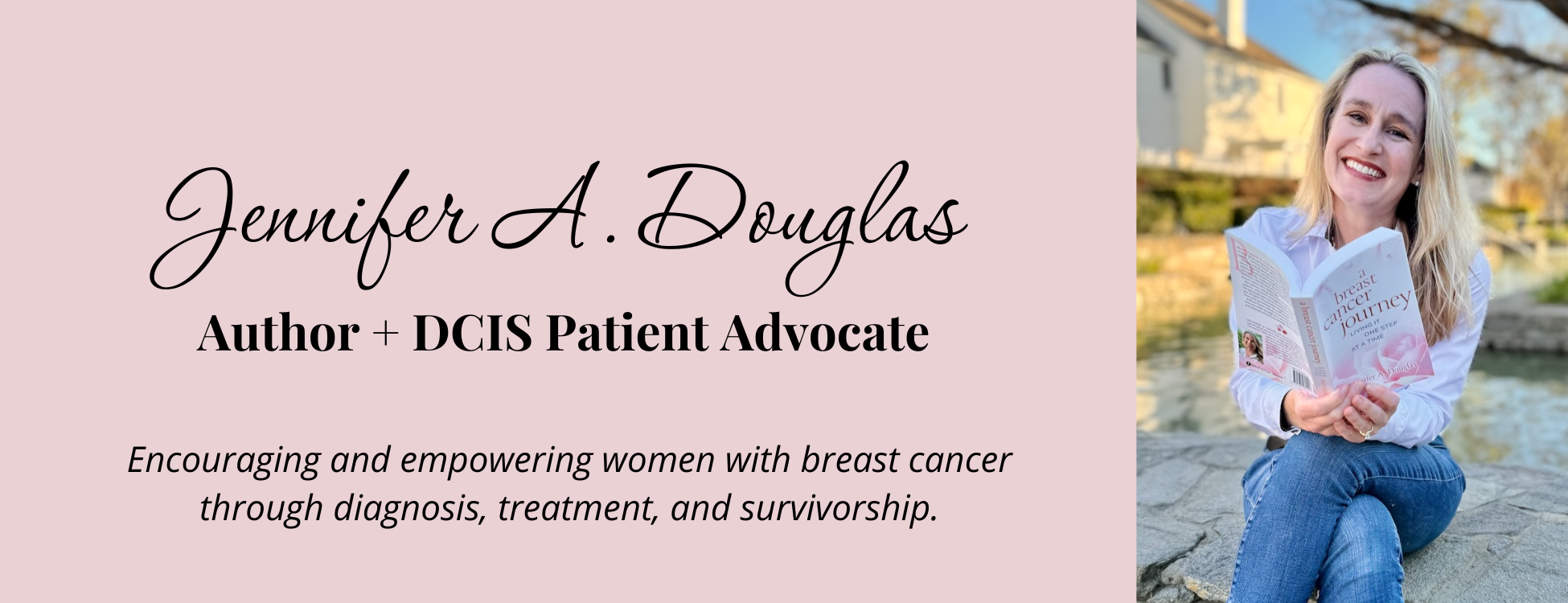
What I Took Home From NCoBC 2024
A Sponsored Post with MOLLI Surgical
At some point during my weekend at the National Consortium of Breast Center’s (NCoBC) Annual conference, my hand wouldn’t stop aching. I’m not sure if it was the book signing or the copious notes I was taking during the conference sessions. It was probably both. Eventually, I had to switch to typing up my notes and give my hand a rest.
When I first learned I would be going to NCoBC with MOLLI Surgical, I was excited, both about signing books and about learning. Breast cancer conferences are an excellent way to learn about the latest news in breast cancer care and then bring that information back to our communities– hence the need for note taking!!
This is the third post in the recap of my time at NC0BC. Here are the other posts in the series:
So Many Sessions— Not Enough Me to Attend All of Them!
The NCOBC annual conference was heavily focused on education. Conference attendees had many opportunities to learn about the latest in all aspects of breast cancer care and to earn CME credits for their attendance. Several certification exams were also offered throughout the conference.
NCoBC is an interdisciplinary conference, and many sessions were divided into tracks corresponding to the different areas of care in breast cancer.
Morning keynote sessions were followed by concentrated sessions, which ran consecutively throughout the day.
Some of the tracks offered were:
- Rad Tech Imaging
- Clinical
- Oncoplastic Surgery
- Administration
- Survivorship
- Imaging
- Navigation
- Sexual Health 1st Responders
- Survivors and Advocates sessions that ran parallel to the main conference
As I looked through the options, I realized I needed to be organized before I arrived so that I could attend the sessions that were most meaningful to me. Planning was going to be key!
My Areas of Focus: Survivorship, Sexual Health, & Imaging
I decided to attend sessions on survivorship, sexual health, and imaging. I then popped between these sessions and the exhibit hall for book signings.
These sessions inspired me, especially as more time has passed from my active treatment.
Here are some of my takeaways from these sessions:
Value of Survivorship Care- Laura Cornell, MD
Breast cancer survivors carry many psychological, physical, and social burdens after treatment. Nearly half of us are living with one or more distressing long-term physical symptom.
Optimal survivorship care involves preventing recurrent and new cancers, monitoring for cancer spread or other treatment effects, treatment for cancer care’s consequences, and coordination between our medical team. Many types of survivorship care plans are available, and our options vary according to our treatment.
The most beneficial programs for us offer individualized care based on our unique needs.
Survivorship: What your Breast Cancer Patients Need to Know about Exercise- Jay Harness, MD
Exercise after cancer is very important. It reduces all-cause mortality by 41%, cancer-specific mortality by 31%, and recurrence risk by 22%.
Additionally, it increases our quality of life.
We should aim for 150 minutes a week of moderate-intensity exercise with strength and resistance training 2-3 days a week. Exercise programs specifically designed for cancer patients are more effective than a “to-do list” for us. To make this more feasible and affordable, work is being done to get insurance reimbursement for exercise oncology.
Breast Implant Illness: What Women and Medical Teams Can’t Ignore- Jessica Porte, RN, BSN
There isn’t a standard of care for Breast Implant Illness (BII), and there is a knowledge gap that this condition can occur.
The FDA does have lists of risks to the patient on their website, so if you have or are considering implants, consider reviewing this .
Implants should be replaced every ten years, and our medical teams should screen us if we have implantable medical devices. In general, smooth implants and those filled with saline appear to have fewer risks than textured implants or silicone.
Check your Chart: Why It’s a Movement, Not a Task- Leslie Ferris Yerger, My Density Matters
The standard of care isn’t taking care of the problem of missed breast cancers due to breast density, so we need to!
One of the ways we can do this is to check our charts and find out our breast density.
The Check Your Chart initiative is easy to use- text “Check your Chart” to 211-411, and you’ll get access to discussion guides, pre-written portal messages to use, and the ability to chat about breast density with the customized system.
Let’s Talk About Sex: How to Ask the Questions- Chery Hysjulien, RN, PsyD, LP
It is very common (60-85% of patients) to have sexual health challenges during and after diagnosis and treatment.
This is an important quality-of-life issue, yet many providers aren’t discussing it with us.
Our treatments impact our libido, vaginal health, energy, and body image. We may also experience pain, inability to climax, and decreased sensation. These issues don’t get better with time. We need help and resources to make improvements.
If your provider isn’t talking about it, bring it up. This is important for our quality of life!
Lotions, Potions, and Pills- Anne Katz, PhD, RN, FAAP
There are many things available to help us with our sexual quality of life after breast cancer. The lack of estrogen can cause dysfunction with our urinary, genital, and sexual functioning and comfort.
Vaginal moisturizers are good for maintaining the moisture inside our vagina. These can be non-hormonal or hormonal. Low-dose vaginal estrogen is safe for breast cancer survivors. Lubricants help make lovemaking more comfortable.
Additionally, there are vulva moisturizers available to help if the external areas of our genitals are feeling scratchy and dry due to the lack of estrogen.
It is critical to be careful about what we use so that we don’t make our symptoms worse. It is best to opt for products recommended by our medical team and with fewer ingredients. We don’t need perfume, glitter, or fancy scents—those won’t help and might cause irritation or infections!
Sexuality In Breast Cancer: A Neglected Topic- Ellie Proussaloglou, MD
Many things can impact sexual dysfunction during and after breast cancer.
One of the most surprising things I learned was that our surgery choice can affect our sexual health. Overall, among patients who have a choice, mastectomy patients report more challenges with sexual health than patients who choose breast-conserving surgery.
Most breast cancer survivors desire sexual intimacy, yet most of us report issues with sexual dysfunction. The medications that put us into menopause have significant impacts on our sexual health.
Vaginal estrogen is safe for breast cancer survivors and is highly effective for the symptoms we experience as a result of medically induced menopause.
The Next Bi-Rads Edition- Stamatia V. Destounis, MD.
This new edition will be thoroughly reviewed and updated. Some of the terminology used to describe breast findings will be changed.
Breast density reporting will now refer to the densest area of our breasts. Some updates will be made to high-risk lesions. Also, there will be a place to note how the breast cancer was discovered. Was it found on a screening mammogram or a breast self-exam?
There will also be updates on what a screening versus a diagnostic imaging session entails, which may impact us as patients. If more images of our breasts are taken and saved, then the imaging session becomes a diagnostic session. What does that mean for us? Since this isn’t finalized yet, there aren’t any conclusions to be made yet, but I’ll be following this.

Information & Connections to Take Home
I went straight from a session, right to the airport, with my head spinning from knowledge and my heart full of connections and hope for the future of breast cancer care!
The weekend I spent at NCoBC was impactful, from the book signings, keynotes, and informative sessions. Thank you to MOLLI Surgical for your continuing partnership!
Until next year!
Jennifer Douglas
Jennifer Douglas is an author, patient advocate, and DCIS breast cancer survivor. After navigating her own breast cancer journey in 2019, she began writing and encouraging others who were newly diagnosed. Her resources include her book, "A Breast Cancer Journey: Living It One Step at a Time," and her online support course, "Encourage: Breast Cancer and Beyond." Jennifer also actively supports patients through her online presence and direct involvement in communities and support groups, offering guidance and encouragement every step of the way.


You May Also Like

My Favorite Post-Lumpectomy Bra (even years after breast cancer)
July 12, 2024
Ten Tools I Used To Walk Through Cancer Anxiety
March 16, 2021
